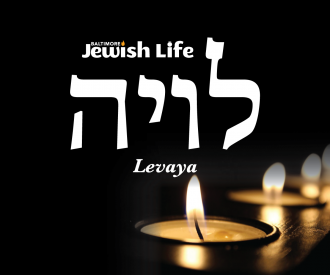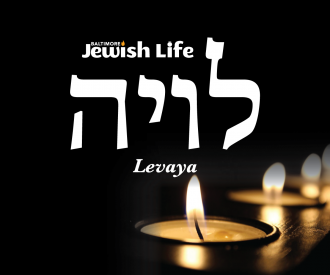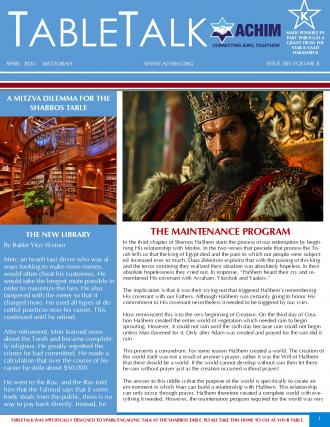Boruch Hashem, Klal Yisroel has Gedolei Torah around. Our Gedolim are the einei Hador – the eys of the generation. We have Gedolei HaPoskim and Gedolei Roshei Yeshiva.
KASHRUS SYMBOL ON MEDICAL MARIJUANA
Medical marijuana became legal in New York state today.
Last week, one of the larger hechsher agencies has agreed to place its trademark seal on the medical marijuana being sold and marketed by a company named “Vireo.” If someone truly needs this for pain, such as scoliosis, by all means, that person should get a prescription for it if needed. But we should realize that generally speaking, the origin of medical marijuana is from a plant. It is also not generally ingested as food in and of itself.
There are certain things and activities that do not require a hechsher. It has been the long-standing policy of many kashrus agencies not to place a hechsher on medication because of two factors: 1] Many medicines do not necessarily need a hechsher and 2] It may discourage people from taking their medications when one with a hechsher is unavailable.
FAR-REACHING IMPLICATIONS
The decision to place a hechsher on medical marijuana has further-reaching ramifications and implications than the simple “is it kosher” question. In this instance, it would appear that the Kashrus agency is making two political statements in granting this hechsher. The first statement is that medical marijuana should be made available to those who need it and that it should not be stigmatized. The second political statement it appears that is being made in the granting of this hechsher is that marijuana use itself should not be stigmatized.
WHO WAS CONSULTED ON THIS?
The question that a number of people have is whether or not any Gedolei Torah outside of the hechsher were consulted on this matter. Was this strictly a business decision? Was it a favor granted to a friend or a friend’s child?
A number of people believe that the “strictly medical” nature of this legalization is somewhat of a sham. Everyone who wishes to experiment with marijuana can merely complain to his doctor that he or she has some ache that just isn’t going away.
There is no question that stigma is being removed by the granting of the hechsher. “Being certified kosher by the .. will not only help us serve the dietary needs of the largest Jewish community in the United States, but also combat unfortunate stigmas associated with medical cannabis,” Mr. Hoffnung, Vireo’s CEO, is quoted as saying in the company’s press release announcing the certification, which applies to the company’s vaporization cartridges, oils and capsules. “Today’s announcement sends an important message to New Yorkers of all faiths and backgrounds,” he added. “Patients should never feel guilty or ashamed for using a product recommended by their physicians.”
It is an open secret that our community is facing a drug wave, and a good portion of that comes from the use of marijuana.
The fact that Vireo now has a supervision on their product essentially puts a hechsher on the use of this drug – even by people who do not need it medically.
The abuse that goes on beyond medical use is real. In Montana, for example, lawmakers say the abuse of the system has gotten “out of control.” Legislators there are rather skeptical that 20,000 state residents suddenly have debilitating medical conditions.
“I guess everybody who gets sick moves to Missoula,” said Rep. Penny Morgan, R-Billings. More than 25% of those with marijuana prescriptions in Montana are between the ages of 21 and 30.
Are there really so many young people with such debilitating diseases?
It also ends up that teens are using the medical marijuana that was prescribed for other. Researchers at the University of Colorado found that almost 75% of teens receiving treatment for marijuana abuse had abused medical marijuana that had been prescribed for someone else.
MEDICAL WORLD HAS NOT BACKED MEDICAL MARIJUANA
And contrary to what seems to be asserted of late, most of the medical world is not backing up medical marijuana. According to an article in Arthritis Care and research by Mary-Ann Fitzcharles, MD, of McGill University in Montreal, and colleagues, at the current state of affairs, there are a number of issues including acute and chronic risks, a lack of evidence for efficacy, and the absence of data on appropriate dosing.
Sharon Levy, an assistant professor of pediatrics at Harvard Medical School and chair of the American Academy of Pediatrics committee on substance abuse, recently told the Washington Post that she is a strong proponent of studying and developing medications from the active ingredients in marijuana. But she does not support the idea of patients or parents making their own oral preparations and guessing at proper dosage without knowing long-term side effects. “It is a bad idea. When I look at the accumulation of studies about marijuana and children, I am very concerned,” she said. The authors of the study have written that “Simply acceding to patient demands for a treatment on the basis of popular advocacy, without comprehensive knowledge of an agent, does not adhere to the ethical standards of medical practice,”
It is also interesting to note that of all the tens of thousands of recommendations for medical marijuana in the state of Colorado, almost half of these recommendations had been made by only 15 physicians. This is a clear indication that the medical world has not embraced medical marijuana as the panacea in which the media has marketed it. The authors of the study point out that the motives for this medical behavior should be questioned and raises ethical concerns.
RAV MOSHE FEINSTEIN’S VIEW
Back when it was illegal in all fifty states, Rav Moshe Feinstein zt”l addressed the question in his Igros Moshe Yoreh Deah Vol. III #35. Rav Moshe pointed to no less than nine very serious issues in which marijuana affects a person.
1] It affects a person physically.
2] It affects a person mentally.
3] It prevents him from studying Torah properly.
4] It prevents a person from davening properly.
5] It affects the proper performance of Mitzvos, eliciting a zombie-like element in their performance.
6] It elicits within the user a stronger desire for things, and explains that this is one of the problems associated with a Ben Sorer U Moreh, the rebellious son discussed in Dvarim 21:18.
7] It is often the abnegation of the Mitzvah of Kivud Av v’Aim.
8] It is a violation of the Ramban’s understanding of Kedosim ti’hiyu, the commandment to be holy.
9] Finally, Rav Moshe writes that such activity induces the user to violate other Mitzvos in the Torah, thus increasing impurity in Israel.
ANOTHER ISSUE, AND THREE MORE VERSES
In consonance with many experts on medical marijuana, two Poskim have voiced to this author their opinion that Marijuana still most certainly constitutes a “gateway drug” leading the user to begin experimenting with other drugs that are illegal and dangerous. The researchers have said that even in areas where medical marijuana is legal, most users obtain marijuana illegally. This obligation appears to be a biblical one predicated upon the verse, “venishmartem me’od bnafshosaichem – And you shall be very careful regarding yourselves (Dvarim 4:9),” and not just limited to “veNishmartem” (Dvarim 4:9).
The verse later on (Dvarim 4:15), “Rak hishamer lecha” is understood by most Poskim to actually comprise a second Mitzvah (See Rav Chaim Kanievsky Shlita Shaar HaTeshuvos #25).
There is also a third Mitzvah, “V’Chai Bahem – And you shall live by them” (VaYikra 18:5).
SO DO RAV MOSHE’S POINTS APPLY TO MEDICAL MARIJUANA?
We will start with the physical and mental effects. According to a long term study of Swedish youth cited by the study, the odds on getting lung cancer if one regularly uses marijuana increase 200%. Yet another concern is for driving. The authors of the study have noted that impairments can last up to a full day after a single ingestion.
What about the mental effects? The study cites the possible effects on mood, and particularly depression, and the possibility of dependence. Marijuana use has been linked to higher rates of mental illness, including thought disorders, depression and anxiety, as well as — according to one prominent study published last year — diminished IQ over time.
As far as the other effects mentioned by Rav Moshe are concerned, someone has pointed out that they apply even more so nowadays, because the concentration of THC has clearly increased. Thus the issues of Bitul Torah, effect upon Davening and Mitzvah performance clearly apply even more. The same is true with Rav Moshe’s latter points.
In short, the rise of the legalization of medical marijuana is fraught with danger in its current form. It is sad, because for epilepsy and for other uses, had it been approached through the medical world, it could have been useful and halachically permitted. At this point, it quite possibly presents a huge stumbling block and may very well constitute a biblical prohibition.
If, in fact, leading Roshei Yeshiva and Gedolei HaPoskim were not consulted on this decision, the Hechsher should seriously reconsider this move, as it helps remove the stigma of marijuana use among all people.
The author can be reached at yairhoffman2@gmail.com











